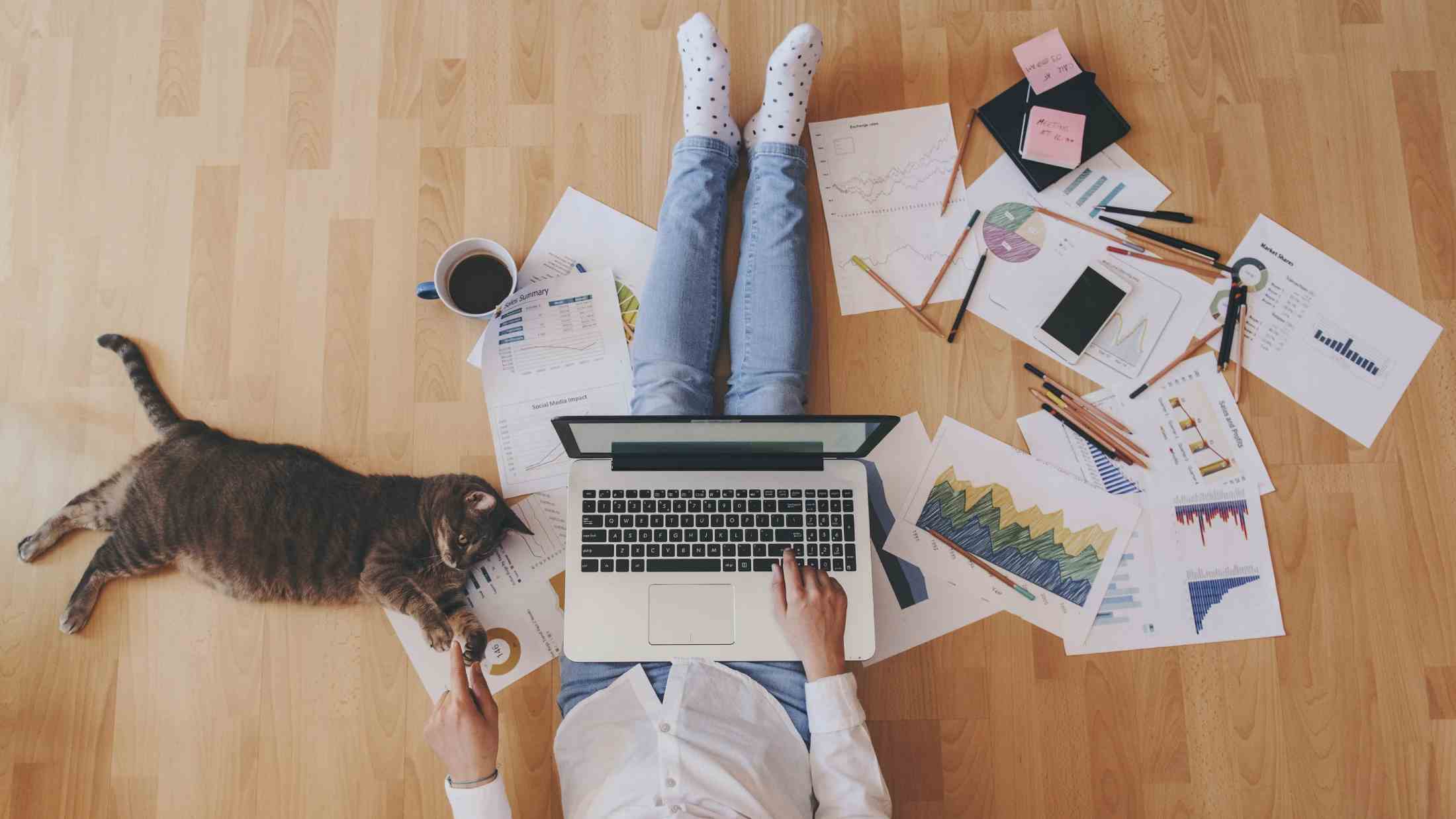Pressure to be available at all hours, combined with a lack of boundaries between home and office, means that many freelancers are effectively always 'on-duty'. But is working all the time really the best way to serve your clients?
What are the figures?
In research we conducted into the day-to-day habits of homeworkers*, we found that it’s common for freelancers and small business owners to burn the midnight oil.
Just 17% of our surveyed professionals work a regular eight-hour day, while 12% are routinely working for over ten hours. Even more concerning, almost 5% are in the habit of putting in punishing 12-hour workdays.
In addition, over 37% of professionals kick-start their day before 9am, with more than a third working beyond 6pm. Over 12% even continue working after 9pm.
What happened to the designer who worked till 4am?
Why such long hours?
A third of the freelancers we questioned said that because they're not physically present at their clients' workplace, they feel obliged to be available at all times. As a result, a third of homeworkers take their phones with them when on a break – with one in ten even bringing their phone to the bathroom!
Lunch breaks suffer too, with just one in five regularly popping out for fresh air during lunch. Less than 3% of those we asked said they use their lunch hour to spend time with friends and family, while six out of ten people take a short break but don't leave the house, and 15% don't take a lunch break at all.
Why is this bad?
Fatigue can seriously impact your efficiency and results at work. This can be caused by lack of sleep – any less than eight hours is generally accepted to be too little – and also by working long hours and not taking breaks.
Fatigue at work has even been linked to some of the biggest workplace mistakes in history, including the infamous 1989 Exxon Valdez oil spill. While freelance consultants are unlikely to cause such a global disaster, honest mistakes can still be costly if you're self-employed.
How to avoid fatigue
The consequences of burning the midnight oil could be severe, so here’s our top tips to avoid fatigue at work:
- Get your full eight hours of sleep each night, with time before bed to unwind from your working day.
- If your work-life balance is out of kilter, it's time to set specific working hours and stick to them – and avoid constantly checking emails in your downtime.
- If you feel tired, don’t let it affect your quality of work. Take a nap and make up the hours later when you're feeling fresh.
- Take a full lunch break – preferably with some fresh air.
- Take holidays. Most workers in the UK get 5.6 weeks of paid leave per year, so treat yourself to the same. And to avoid worrying about work while you’re away, remember to give your clients plenty of notice and activate your out-of-office message.
If a client loses money or experiences reputational damage due to an error you're responsible for, they could claim compensation from you to the tune of thousands.
*Based on a study of 330 professionals working from home conducted by AXA Business Insurance in January 2016.
**10% of professional customers paid this or less for business insurance between August 2015 and January 2016






